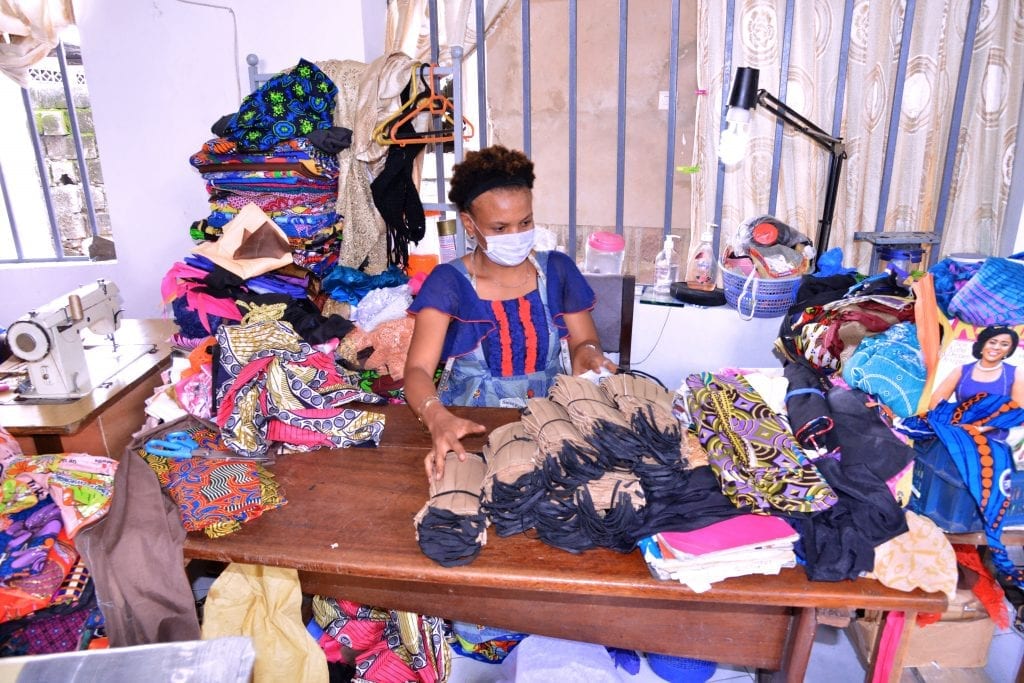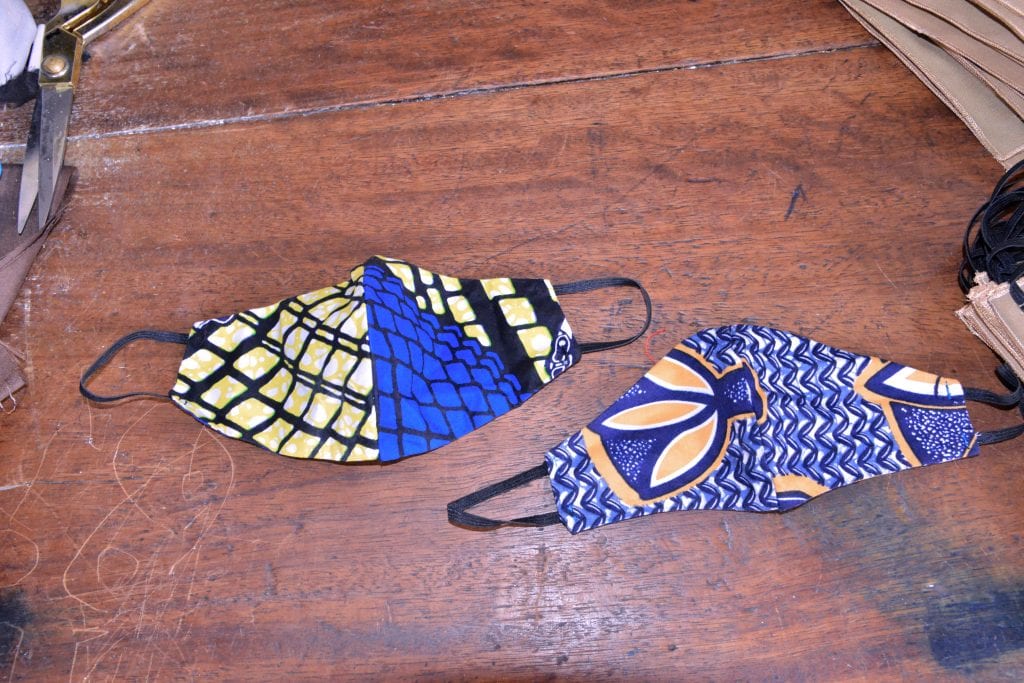COVID-19 in the DRC
FINCA clients innovate in the face of a pandemic
For more than 17 years, Eugénie Kabeya has been sewing women’s clothes from her tiny shop in Kinshasa, DRC. She became a FINCA customer in 2003, first as part of a village bank which was meeting in the Bandalungwa area. Later she became the president of her group and then managed to get an individual loan. Over the years, she built her business with a mix of grit and entrepreneurial spirit—and loans from FINCA DRC. But all of that changed with the arrival of COVID-19 in the DRC.

“Almost overnight, things got worse. I started having less clients and life became suddenly hard. I had almost 20 years running this sewing business and had been able to support my entire family. I was able to cover everything I need with the money earned from this business. All of that changed.” Said Ms. Kabeya.
According to Ms. Kabeya, it happened so suddenly, and people in her community initially focused on how to survive. That meant finding new sources to secure food and medicine. It also meant no one was thinking about clothes. She estimates that in the first month of the pandemic, she began losing 70% of her monthly revenue and could only retain 5 of the 12 employees she had.
But in those first weeks, another idea sparked—one uniquely fitting for Ms. Kabeya’s skills and current needs.
“When I first thought about producing masks, I doubted that it could work. I tried a few times, but eventually stopped thinking about it. But one day I was talking with the manager at my local FINCA branch about the difficulties I was facing with my business and she reminded me: I am a tailor! I could easily put that to use to make masks and help my business by selling them to compensate the losses I was experiencing because of COVID-19.”
With the encouragement of the FINCA staff at Victoire Branch, Ms. Kabeya got to work by procuring fabric, thread and elastic. She drew the model, then jumped right into sewing.
The masks run between $0.65 to $1.3. Because of word of mouth, she hasn’t had to sell any masks on the street, rather, orders started coming in from different people, as well as associations and small enterprises. With the quick sales, she was soon able to call two people back to work to support making masks. For her, that was one of the best moments.
“It helped bring my life back to normal. I’m doing business and helping people protect themselves from the pandemic. And my prices are very affordable to low-income people in my town.”

Ms. Kabeya tries to put her special touch to make each mask different, but most of the time, she said, customers who order clothes prefer having a mask made of the same piece of fabric as their clothes. But still, some let her be creative. More than that, she’s begun thinking creatively about her next steps for her business.
“COVID-19 has taught me a different way of selling: e-selling really works! We think that in the future, we can better communicate our business through the internet and social media. We have understood that even though everything is closed, the internet still works, people communicate on social media, and even business goes through it. We plan to launch an online platform for selling all of our production.”
To date, she’s produced 5,500 masks. And she is just getting started.